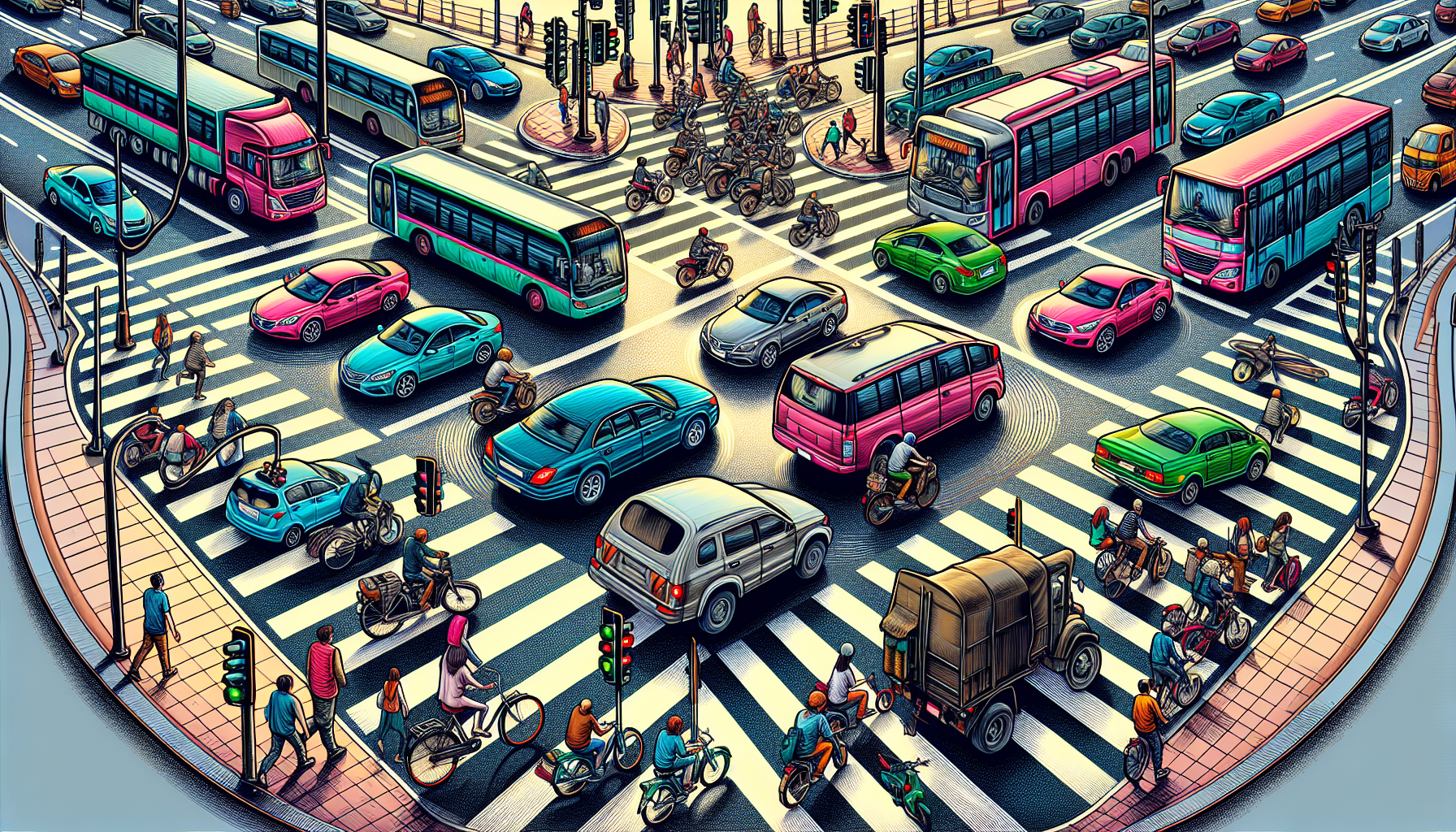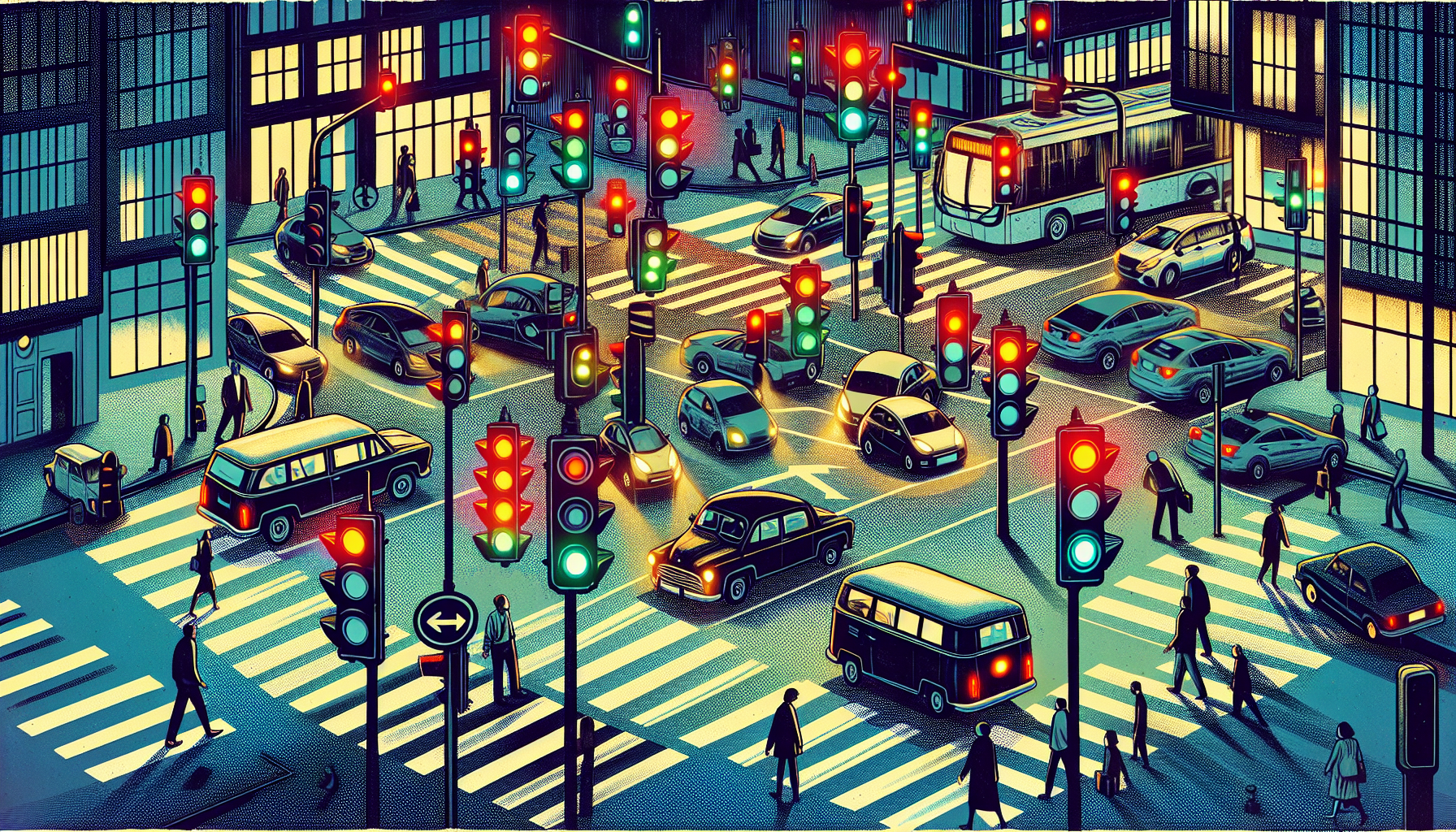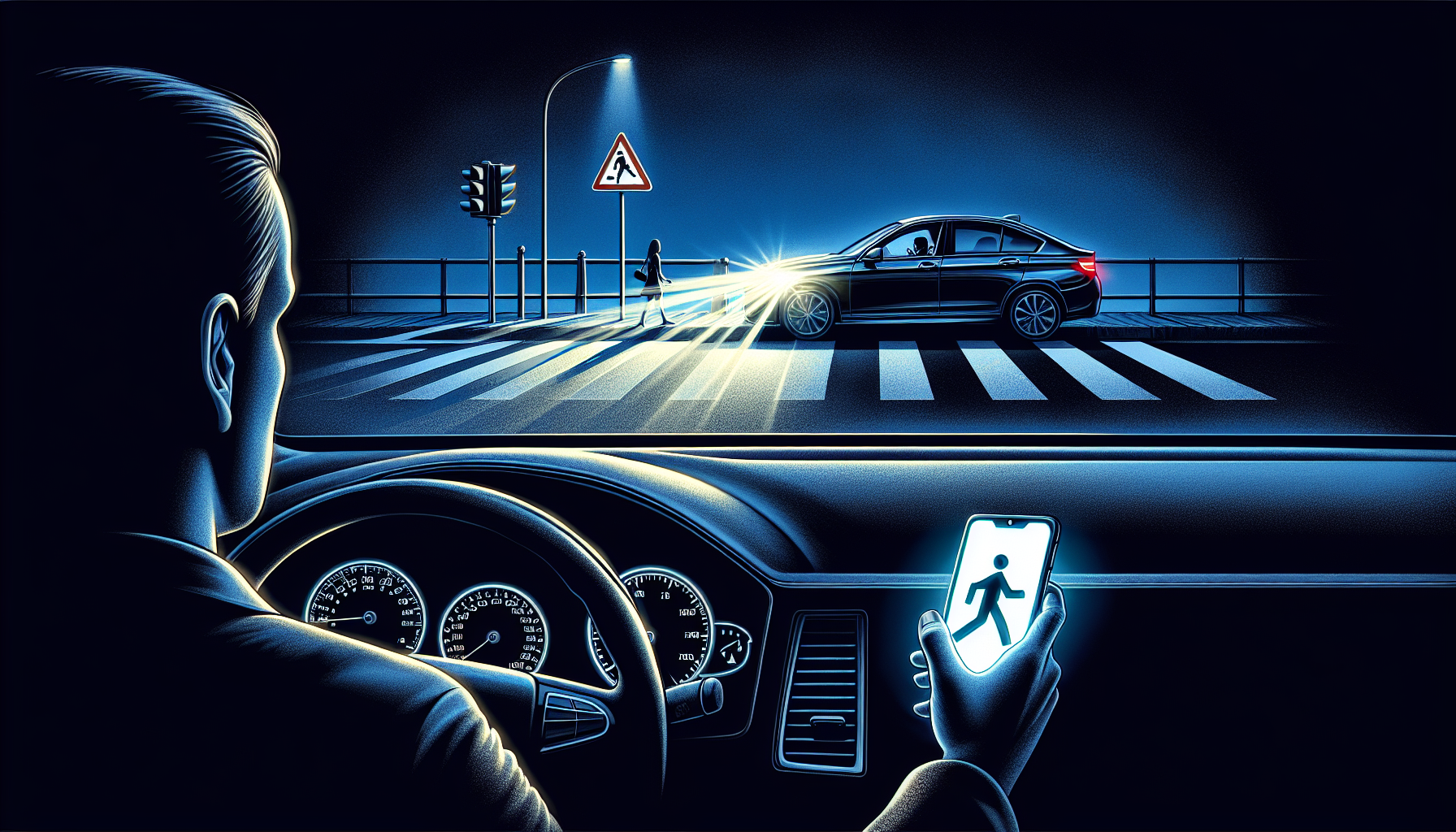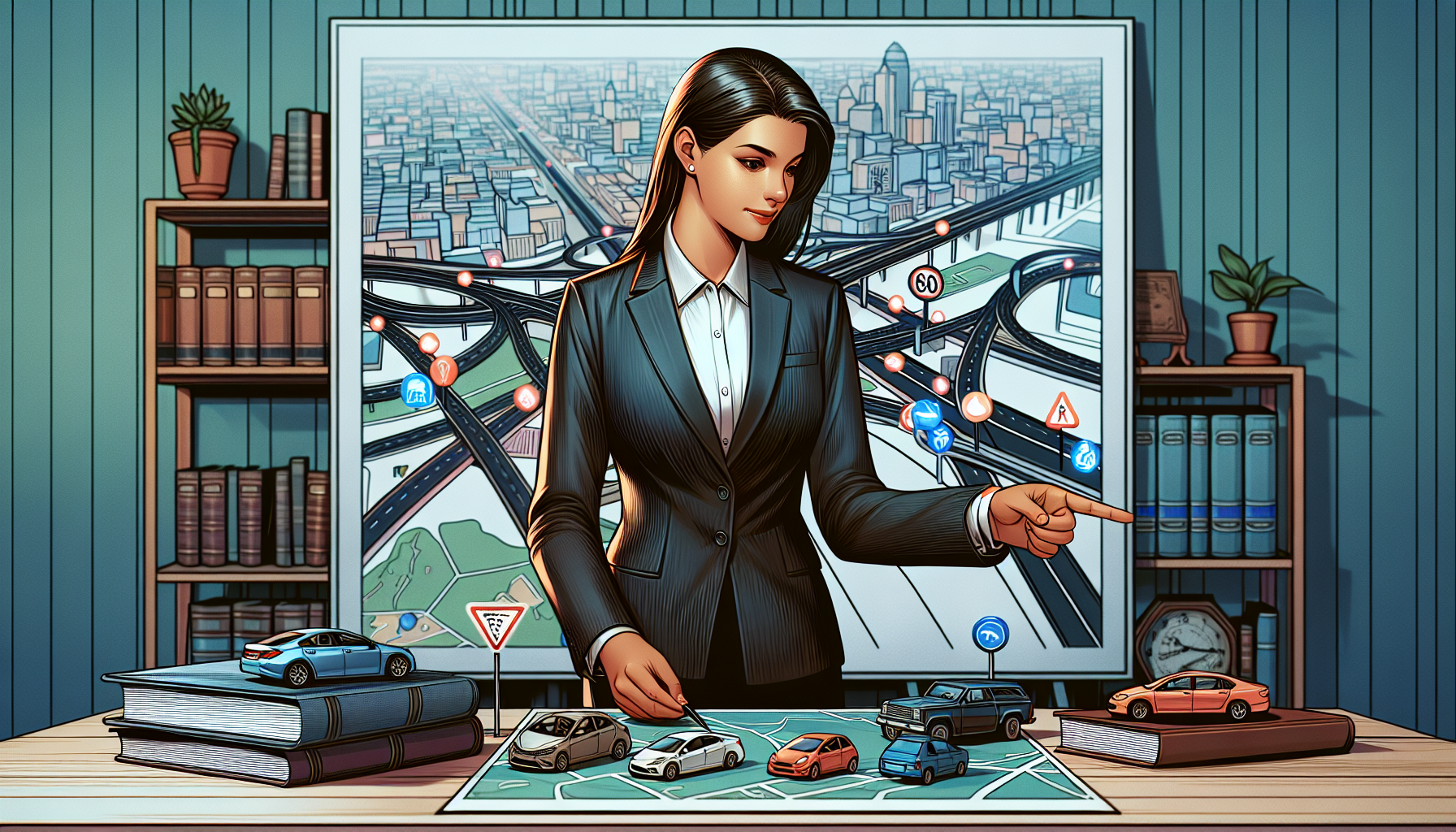In Savannah, where history meets modern bustle, some intersections pose significant dangers to drivers. This article maps out these dangerous traffic intersections in Savannah, examines why they’re notorious, and equips you with defensive driving tips to handle them. Dive into our guide to better understand and traverse Savannah’s most treacherous junctions safely.
Key Takeaways
Savannah’s dangerous intersections, particularly White Bluff and Abercorn, Chatham Parkway and I-16, King George and Abercorn, and Lynes Parkway, have high accident rates due to factors such as heavy traffic, poor design, and speeding.
Traffic accidents in Savannah are often caused by human error, including distracted driving, especially during peak hours between noon and 6 PM, and are exacerbated by issues such as malfunctioning traffic signals.
Improvement efforts in Savannah focus on enhancing intersection safety and traffic flow through infrastructure projects, defensive driving strategies, adherence to traffic laws, and community awareness campaigns to reduce traffic-related incidents.
Navigating Savannah's Hazard Zones: Identifying Dangerous Intersections

The streets of Savannah are not just thoroughfares but also tapestries woven with the threads of history and the rush of contemporary life. However, in this mix, there are dangerous intersections in Savannah where caution must outweigh convenience. Identifying these dangerous intersections is the first step toward reducing the risk of becoming a statistic in Savannah’s traffic logs. With a history of accidents caused by factors such as speeding, red light running, and distracted driving, these crossroads demand our full attention.
Within Savannah and Chatham County, certain intersections have claimed notoriety as the most dangerous. These intersections have a higher frequency of sideswipe collisions and fender benders that could leave even the most seasoned drivers rattled. The four intersections that stand out in terms of the riskiest intersections are:
White Bluff and Abercorn
Chatham Parkway and Interstate 16
King George and Abercorn
Lynes Parkway
Each dangerous intersection has its unique set of challenges that contribute to their dangerous reputations, making them some of the most dangerous road intersections.
The Infamous White Bluff and Abercorn Convergence
At the infamous convergence of White Bluff and Abercorn, drivers face a gauntlet of hazards. In 2017, it was this intersection that topped the charts for the most car accidents ever in Savannah, a dubious distinction indeed. The reasons for this are multifaceted; major shopping centers lure a high volume of vehicles, and the complexity of merging lanes creates a breeding ground for confusion and collisions.
Compounding the challenges at White Bluff and Abercorn are crowded conditions, indistinct lane markers, and difficulty in navigation. It’s a daunting task for locals and a veritable maze for visitors, as they struggle to decipher the correct paths through the vehicular melee.
Chatham Parkway's Intersection Woes
Just a few miles away, the intersection of Chatham Parkway and Interstate 16 tells its own story of traffic woes. The design here has seemingly failed to evolve alongside the burgeoning traffic demands, leading to frequent and often severe collisions. The inadequate design has not kept pace with the growing population and the resulting increase in vehicles, painting a grim picture of congested lanes and frayed nerves.
This intersection’s lack of capacity to have six lanes to handle the high traffic volume means that congestion is a constant companion for commuters at this busy intersection. The daily grind here is punctuated by the sound of screeching brakes and the sight of crumpled metal, a clear indication that something must be done to alleviate the safety issues that plague Chatham Parkway and Interstate 16.
King George's Notorious Crossroads
Another intersection that has etched its name into the collective consciousness of Savannah’s drivers is the crossroads of King George and Abercorn. Narrow lanes, construction activities, and a landscape ripe for distractions contribute to a high number of crashes here. The year 2017 saw this intersection ranking the third highest number in the number of collisions, with multi-vehicle crashes underscoring the gravity of the situation.
One notable incident that exemplifies the dangers at this intersection occurred in 2018 when a tanker truck lost control and struck a median, leading to a fiery scene and a major road shutdown. Such alarming events serve as stark reminders of the notorious reputation that King George’s crossroads have rightfully earned.
Lynes Parkway: The Speed Trap
Lynes Parkway, also recognized as I-526, is synonymous with the perils of speeding. The parkway’s design, with its high-speed limits and multiple lanes, sets the stage for dangerous interactions at its intersections. The result is a track record of deadly collisions, with high-speed travels often culminating in tragedy.
A heightened sense of caution is recommended for drivers on Lynes Parkway. The urgency of this warning cannot be overstated, as the documented hazards have made this parkway a notorious location for accidents that could easily be mitigated by a collective commitment to adhering to the posted speed limit limits.
Understanding Traffic Flow and Accident Patterns in Savannah

The pulse of Savannah’s streets ebbs and flows with the daily rhythms of traffic, each intersection with its own heartbeat. Understanding these patterns is key to grasping the reasons behind the frequent accidents that pepper the city’s intersections. Human error, often due to high traffic volumes and the chaos of peak times, is the leading cause of traffic accidents in Savannah, with the most dangerous time falling between noon and 6 PM.
Intersections with heavy traffic, like Ogeechee Road and Chatham Parkway, become particularly hazardous during these peak times. Drivers must be prepared for sudden stops and cautious turns, with Montgomery Street and West 37th Street being other notable areas requiring heightened alertness. These patterns paint a vivid picture of the critical importance of driver awareness at all times.
Rush Hour Risks
While ‘rush hour’ might evoke thoughts of rushed commutes and busy activity, it also represents a perilous period on Savannah’s roads. The city’s peak traffic congestion occurs when drivers are either hastening to work in the morning or heading home in the late afternoon to early evening. This surge in vehicles on the road amplifies the risk of vehicular accidents, as drivers jostle for space on congested roadways.
These conditions, fraught with congestion and nerve-wracking driving situations, can lead to confusion and distraction, with specific areas like I-16 known as hotspots for congestion and, consequently, collisions. It’s during these hours that the mettle of Savannah’s drivers is truly tested, and their ability to maintain focus can mean the difference between a safe arrival and an unfortunate incident.
Traffic Signal Troubles

An additional component in the intricate mosaic of Savannah’s traffic safety is the function of traffic signals. When these signals malfunction or are poorly timed, they can significantly contribute to intersection crashes and create confusion for drivers. The repercussions of malfunctioning equipment and desynchronized traffic lights cannot be understated, as they are primary culprits in the chaos at certain dangerous intersections.
The necessity of reliable traffic signals for regulating traffic flow and minimizing accident risks underscores the city’s responsibility to maintain these systems diligently. When signals go awry, the delicate dance of intersection navigation and traffic patterns can quickly devolve into a dangerous game of chance.
Distracted Driving Dilemmas

Amid the myriad reasons for traffic mishaps in Savannah, one stands out with alarming clarity: distracted driving. Engaging in activities such as:
texting
using the phone
eating or drinking
talking to people in your vehicle
fiddling with the stereo, entertainment or navigation system
using a device or feature integrated into your vehicle
talking or singing to yourself
While driving diminishes a driver’s awareness and response time, especially at intersections. This dangerous practice is a leading factor in auto accidents across the city, with many accidents where a momentary lapse in attention can have irreversible consequences.
Maintaining focus on the road and keeping hands on the wheel isn’t merely a safety recommendation; it’s mandatory for the welfare of everyone navigating Savannah’s roads. The cityscape, with all its distractions, demands a level of focus from drivers that is non-negotiable if we are to see a reduction in intersection-related accidents.
Preventative Measures and Safety Tips
As we navigate the labyrinth of Savannah’s streets, it becomes clear that proactive measures are our best defense against the perils of its intersections. Vigilance, a term often used in the context of safety, takes on a whole new meaning when applied to the act of driving. To stay safe, especially at the intersections identified as danger zones, drivers must:
Remain alert
Avoid speeding
Maintain a safe following distance
Signal their intentions clearly
Approach intersections with utmost caution.
Whether you’re a local familiar with the quirks of Savannah’s roads or a visitor trying to make sense of the traffic flow, the principles of safe driving remain the same. Sticking to traffic rules, maintaining alertness, and foreseeing potential dangers are behaviors that must be practiced to significantly lower the risk of accidents.
Defensive Driving Strategies
Defensive driving is not just a strategy; it’s a philosophy of road safety that requires commitment and practice. By following these principles, drivers can minimize their risk of collisions, particularly in a city known for its frequent accidents. Here are some key tips for defensive driving:
Avoid distractions and focus on the road.
Be aware of your surroundings and anticipate potential hazards.
Maintain a safe following distance and avoid tailgating.
Obey speed limits and adjust your speed to road conditions.
Use your turn signals and check blind spots before changing lanes.
Stay calm and avoid aggressive driving behaviors. By following these tips and remaining alert and cautious at all times, you can become a more defensive driver and reduce the risk of accidents.
When approaching intersections known for their riskiness, such as Abercorn Street and White Bluff Road, defensive driving becomes even more critical. Extra space between the other cars behind, advanced signaling of turns or lane changes, and a heightened awareness of your surroundings can make all the difference. These strategies are simple yet effective and can be lifesaving in the complex traffic environments of Savannah.
Heeding Traffic Signs and Signals
The importance of heeding traffic signs and signals cannot be overstated. These tools of road management serve as the conductors of traffic flow, guiding vehicles safely through the network of streets and intersections. By obeying these instructions, drivers foster a culture of safety that persuades others to follow suit, thereby minimizing the risk of accidents.
At busy junctures like DeRenne Avenue and Waters Avenue, patience and adherence to traffic signals are essential. Drivers who respect these guidelines not only protect themselves but also those around them, making the roads safer for everyone.
The Role of Georgia Department Initiatives
Government initiatives play a pivotal role in enhancing traffic safety in Savannah. The city’s Department of Transportation Services is tasked with maintaining traffic signals, a responsibility that is crucial in preventing intersection crashes and driver confusion. Well-maintained signals are essential for the smooth operation of traffic, ensuring that the rules of the road are clear and adhered to by all.
By focusing on key areas and implementing improvements, the Georgia Department can significantly influence the reduction of accidents. These efforts, combined with the vigilance of individual drivers, form a unified front in the battle against traffic dangers.
Legal Recourse for Intersection Accident Victims

Despite our best efforts to navigate safely, accidents can still occur, leaving victims to contend with the aftermath of suffered injuries. In the unfortunate event of a crash, particularly at one of Savannah’s treacherous intersections, being aware of your legal options can offer a ray of hope. Victims may seek compensation for their injuries and losses, and enlisting the help of a Savannah car accident lawyer can be a critical step in navigating the legal process.
Comprehending your rights and the necessary actions can be daunting amidst such stress. That’s where legal professionals step in—to guide accident victims through the claims process, offer legal help and advice, and fight for fair compensation.
Seeking Compensation for Injuries
For victims of intersection accidents, pursuing compensation goes beyond financial recovery; it’s a quest for justice and recognition of the endured hardships. Economic damages, such as medical expenses and lost wages, can be quantified and reimbursed, while non-economic losses, like pain and suffering or emotional distress, are subjectively evaluated and compensated accordingly.
The road to compensation for serious injuries might also include considerations for future losses, reflecting the long-term impact of the serious injury or accident on the victim’s life. This can encompass ongoing medical care, reduced earning potential, and any necessary services or accommodations that become part of the victim’s new normal.
Role of a Savannah Car Accident Lawyer
A seasoned Savannah car accident lawyer can be the ally that accident victims need in their corner. Insurers often attempt to minimize payouts, but a lawyer’s expertise in counteracting these tactics can maximize the value of a claim. Lawyers can provide strategic legal representation, engaging medical and financial experts to bolster the case with compelling testimony.
This expert testimony can be instrumental in establishing the full extent and value of damages, ensuring that victims receive the compensation they deserve. The presence of a knowledgeable attorney can make a significant difference in the outcome of a personal injury claim, providing both a sense of security and the prospect of a fair resolution.
Intersection Improvement Efforts in Savannah
The city of Savannah is not idle in the face of its traffic challenges. Efforts to improve intersections are in progress, with a goal to reduce congestion and boost both safety and the overall traffic flow throughout the city. These initiatives, funded by local revenue from sales tax and other sources, include:
Adding traffic signals at key intersections
Implementing roundabouts to improve traffic flow
Widening roads to accommodate more lanes
Installing pedestrian crosswalks and signals
These initiatives are a testament to Savannah’s commitment to its residents and visitors.
By focusing on key problem areas, these projects are instrumental in reducing traffic hazards and increasing efficiency within Savannah’s transportation network. The promise of a safer and more streamlined travel experience is on the horizon, thanks to the city’s proactive approach to tackling the issues head-on.
Upcoming Infrastructure Projects
With progress and safety in mind, Savannah is poised to undertake a series of ambitious infrastructure projects. Approximately $1.4 billion is earmarked for improvements to major highway corridors such as Georgia 21 and U.S. 80, with a focus on enhancing traffic flow and access. These improvements are not only expected to improve the daily commute but also to boost the region’s accessibility, especially in relation to the bustling Port of Savannah.
Among the slated projects, the following are aimed at improving traffic flow and safety in Savannah:
Project DeRenne: Enhancing traffic signal timing and flow between I-516 and White Bluff Road
Skidaway Road Improvement Project: Improving safety through better road design, modern traffic signals, and pedestrian infrastructure
Reconstruction on Little Neck Road: Improving safety through better road design, modern traffic signals, and pedestrian infrastructure
Island’s Expressway Bridge Replacement: Ensuring the safety of inhabitants
These projects represent a forward-thinking approach to Savannah’s growth and the safety of its inhabitants.
Community Awareness Campaigns
Beyond the concrete and steel of infrastructure projects, Savannah’s safety initiatives extend into the realm of community awareness. Campaigns promoting traffic safety and responsible driving are key elements of the city’s comprehensive approach to road safety. By educating the public on the importance of safe driving practices, these initiatives help cultivate a culture of mindfulness and responsibility that can significantly impact the reduction of traffic-related incidents.
These campaigns serve as reminders that every individual has a role to play in ensuring the safety of our streets. When drivers are informed and engaged, the collective effort can lead to a noticeable decrease in accidents, making Savannah’s roads safer for everyone.
Summary
As we conclude our journey through the streets of Savannah, it’s clear that the city’s charm is matched by the complexity of its traffic challenges. From the notorious intersections of White Bluff and Abercorn to the rush hour congestion on Chatham Parkway, the risks are real but not insurmountable. Armed with knowledge of the dangers and a commitment to safe driving practices, each of us can contribute to making Savannah’s roads safer.
The path forward includes embracing defensive driving, heeding traffic signals, and supporting community and governmental efforts to improve infrastructure. Let us carry the insights from this guide with us as we navigate the roads, ensuring that our treasured city remains a place of beauty and safety for all who traverse its storied avenues.
Frequently Asked Questions
How safe is Savannah Historic District?
Savannah Historic District is generally safer than other major cities, with most crimes being car break-ins and petty theft. Use common sense and consider taking a taxi if you feel nervous, especially when walking alone at night.
What are the most dangerous intersections?
Some of the most dangerous intersections in the U.S. include the 40 deadliest intersections. Be cautious when traveling through these areas.
What areas to stay away from in Savannah GA?
It's best to avoid the areas bound by River Street/the Savannah River to the north, E Broad Street to the east, Gwinnett Street to the south, and Martin Luther King, Jr. Boulevard to the west. These areas can be less safe.
What are some of the common causes of accidents at Savannah's dangerous intersections?
Accidents at Savannah's dangerous intersections are often caused by speeding, running red lights, distracted driving, failing to yield the right-of-way, poor intersection design, and unclear lane markers. These factors greatly contribute to the risk of accidents.
What should I do if I've been involved in an accident at a Savannah intersection?
Contact a Savannah car accident lawyer to understand legal options and seek compensation for injuries and losses following an intersection accident.

